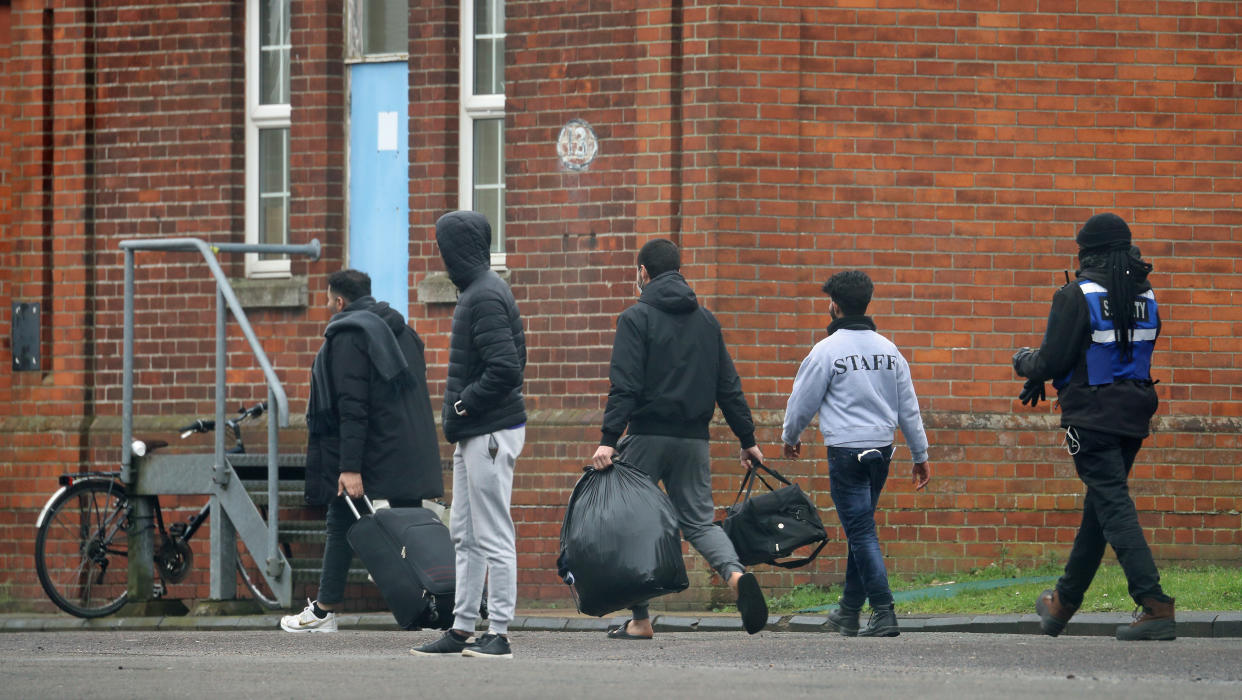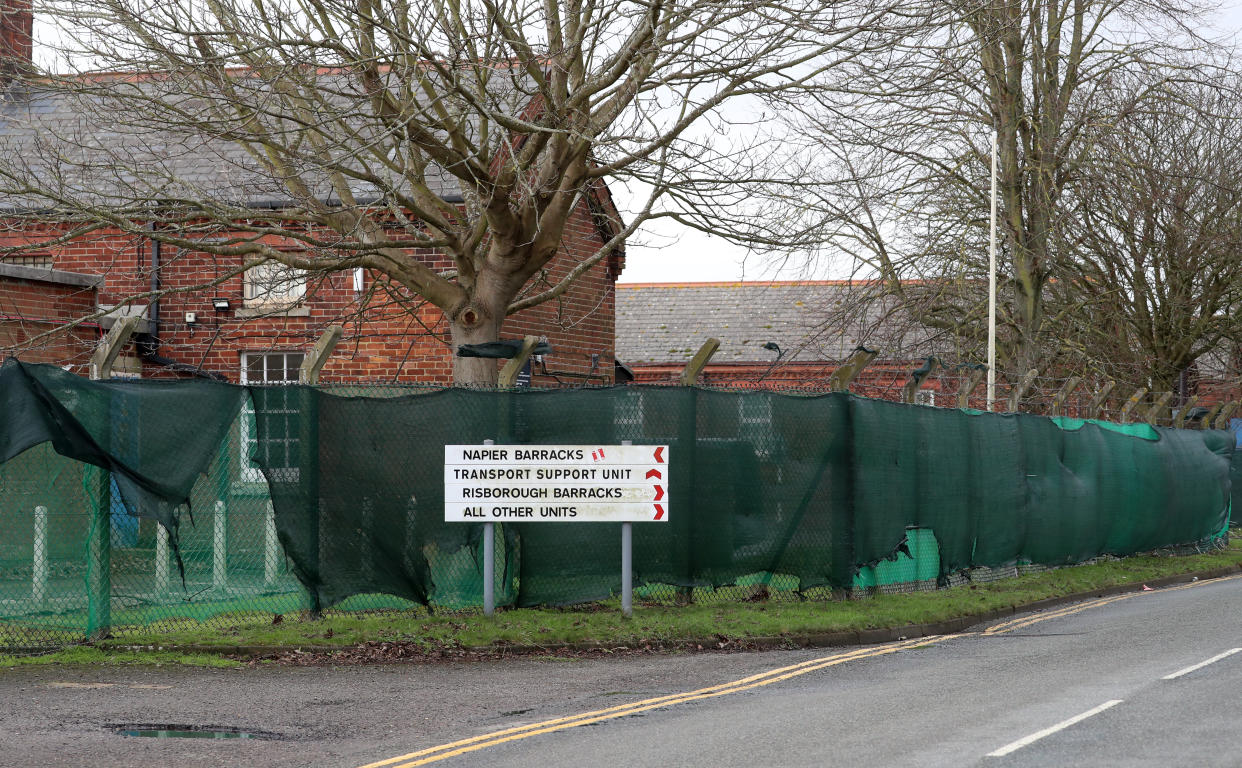MP stunned as Government admits extent of Covid outbreak
An MP was stunned after the Government admitted almost 200 asylum seekers caught Covid while staying in dormitory accommodation at a former Army barracks.
Labour MP Yvette Cooper said “Oh my god!’ when Permanent Secretary Matthew Rycroft confirmed to the Home Affairs Committee on Wednesday there was a total of 178 positive tests in January and 19 in February at Napier Barracks in Kent.
It has been used as “emergency” accommodation since September last year, despite significant welfare concerns.
But even before any residents had moved in Public Health England (PHE) gave warnings the military site’s dormitories were “not suitable” for use, according to court documents.

Committee chair Cooper said: “Oh my God, you had 178 cases at a centre which had dormitory accommodation of over 20 people in those dormitories – that looks like pretty clear evidence to me that those dormitories were not Covid-safe if you managed to generate within them 178 Covid-positive cases.
“Presumably, that would have affected staff who all live in the local community as well.
“On what planet did you think that in the middle of a Covid crisis, it was safe or sensible to put over 20 people in a dormitory so they were all sleeping together in the same room with the same air overnight each night?”
Rycroft added, “as the Home Secretary said, we were following the guidance at every stage and the guidance was to ensure there was as much space as possible, certainly two metres between beds”.
Cooper called for the public health advice which was given regarding Napier Barracks to be published.
Rycroft told the committee: “I can commit chair, subject to the ongoing court cases, to provide as much transparency as possible.”
The site has been used to house up to 400 residents, but reports suggest many have been moved off the site last week with around 50 remaining.
Read more:
'Forcing tired pupils to have longer school days wouldn't work', say teaching experts
Greece 'may open borders to vaccinated British tourists from May’
In a further exchange when Home Secretary Priti Patel was asked if they had "seen the faces of those people who you put in that unsafe accommodation," she responded: “Every single individual that comes into the care of the Home Office, they have personalised support and that happens at the initial stages of their own personal assessments.”
She added the Home Office had tried to meet social distancing guidance at the barracks but "people were also not following the rules".
Cooper called this response "astonishing" and said Patel was "effectively blaming those people for not following the rules, when they were put in accommodation where they had to sleep with 28 people to a room".

Lawyers representing six men previously housed at Napier Barracks, all of whom are said to be “survivors of torture and/or human trafficking”, say it must be “immediately” closed down.
In a witness statement, in court documents, they remark on the “troubling” revelation that PHE warned the Home Office that the dormitories “were not suitable” for use – advice which was rejected.
They also allege that “no Home Office official has visited the site since November 13 2020” – a claim the Home Office has denied.
Dr Jill O’Leary, the leading GP for charity the Helen Bamber Foundation’s medical advisory service, said the news that the Home Office had apparently rejected a PHE warning was “very, very sad but not surprising”.


